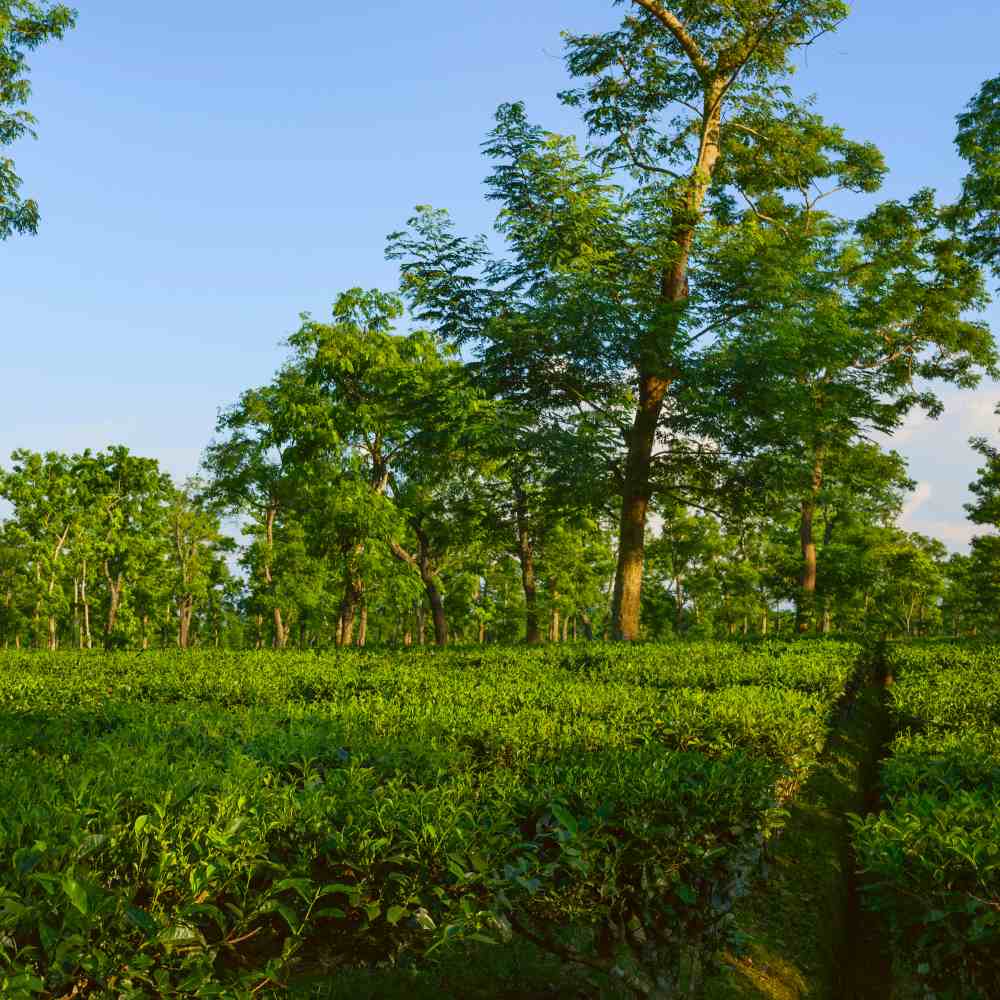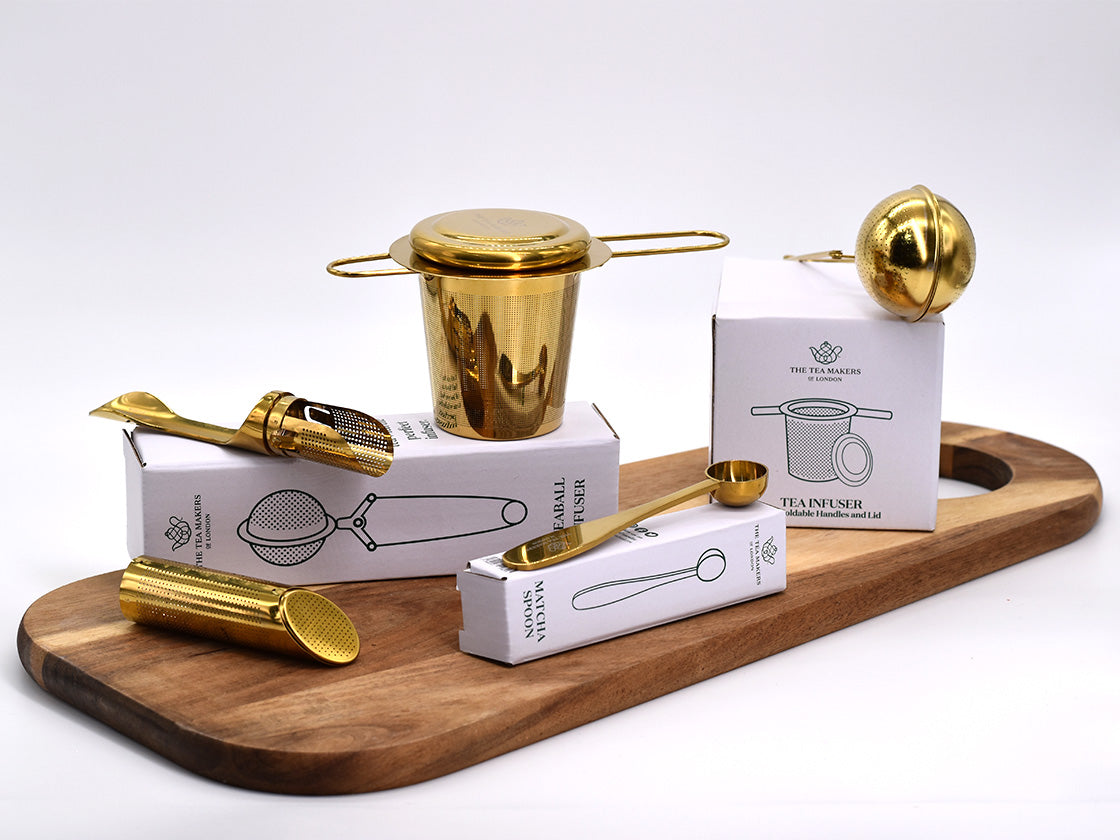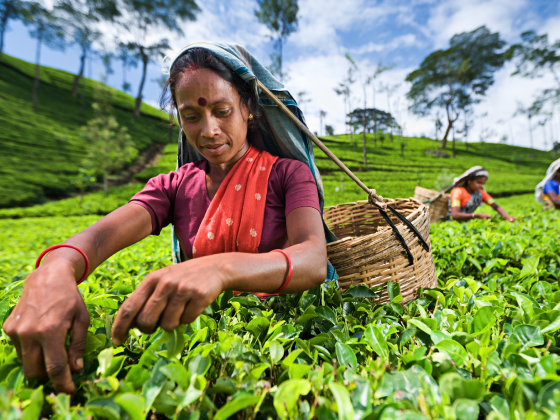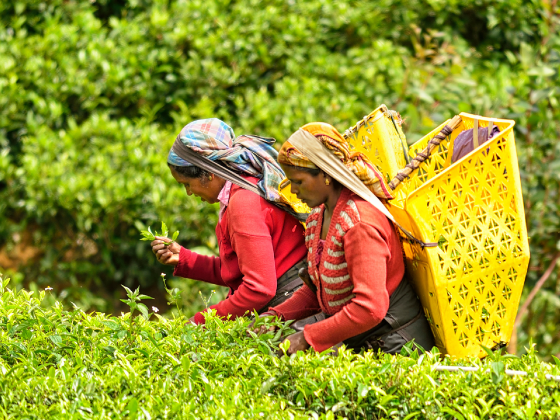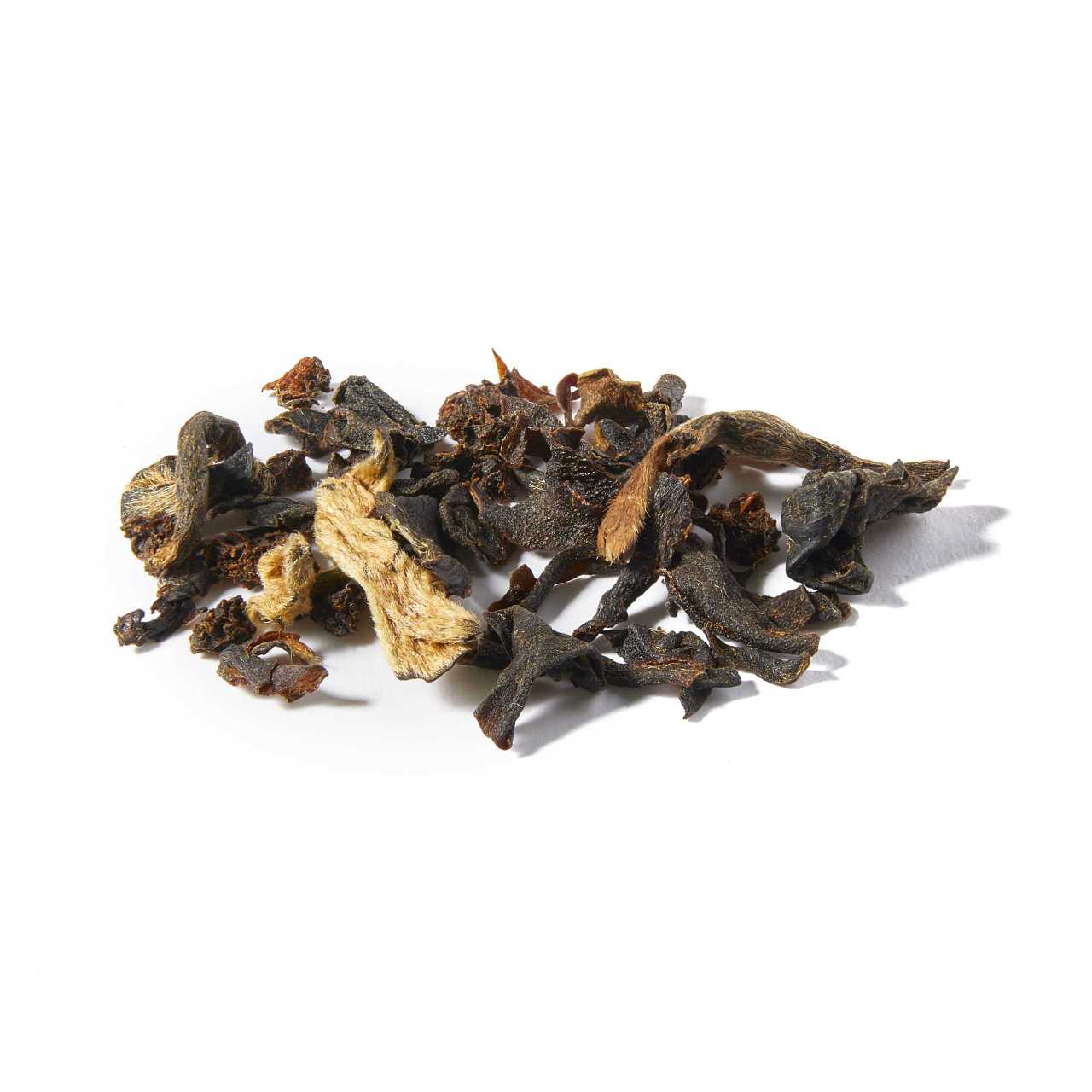
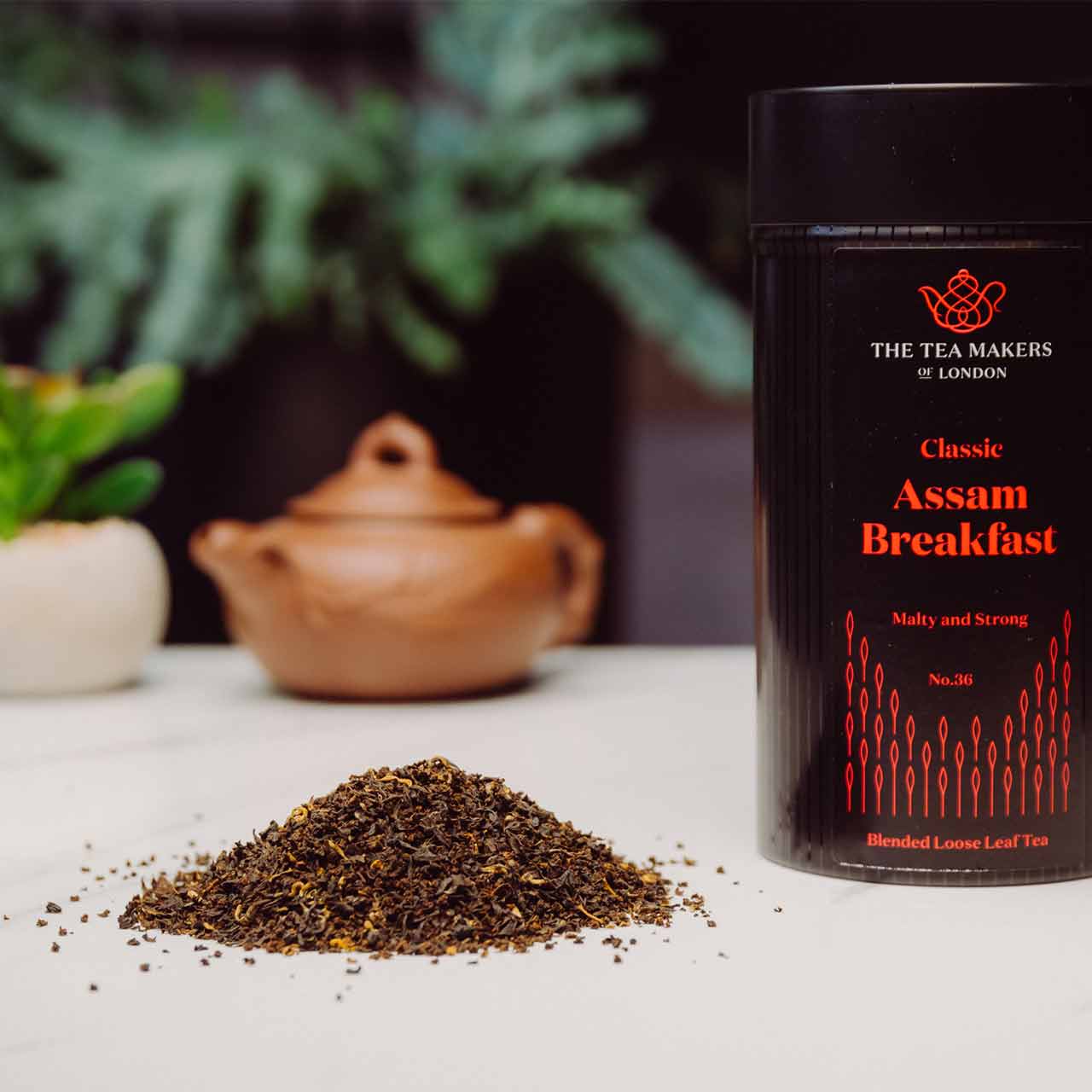






No. 36
Assam Breakfast - Loose Leaf Tea
With its bold, dark leaves and invigorating, malty flavour, this Assam Breakfast blend is the perfect brew to perk up your morning.
Choose options
With its bold, dark leaves and invigorating, malty flavour, this Assam Breakfast blend is the perfect brew to perk up your morning.
With its bold, dark leaves and invigorating, malty flavour, this Assam Breakfast blend is the perfect brew to perk up your morning.
Bold, brisk and malty, our loose-leaf Assam Breakfast tea is a robust blend of fine Indian tea with aromas of dark fruit and caramel. Everyone should have a caddy of this single origin black tea in their cupboard – with its bright and robust flavours. It's an essential morning wake-up call.
Harvested in the summer from select tea gardens in the famous Assam region, this blend of tea leaves is characterised by short, dark rolled leaves and a beautiful bright amber-coloured infusion. While our Assam Breakfast Tea really comes into its own on a cold winter's morning, it can equally be served throughout the day: mid-morning with a pastry or as an afternoon pick-you-up, perhaps. One of the most versatile black teas, Assam Breakfast Tea, can even be served as a palate cleanser for spicy dishes!
Our loose-leaf Assam blend exhibits all the rich, bold qualities that have made Assam such a popular morning brew. It also helps get your day off to the right start, containing plenty of polyphenols, antioxidants associated with disease-fighting properties and other health benefits such as reduced cholesterol and healthy heart function.
This tea incorporates the best of the two tea production methods: the time-honoured orthodox process, where leaves are withered, dried and rolled; and CTC (Crush Tear Curl), the way in which most Assam teas are made.
Our Assam Breakfast blend is made from 80% smaller orthodox leaves to ensure the highest quality, with 20% CTC leaves incorporated for an extra flavour punch. If you like a strong, full-bodied cup of black tea, this no-nonsense brew is for you.
What is Assam tea?
Assam tea is the backbone of many a breakfast blend. Characterised by dark leaves and a robust character, this popular morning brew takes its name from the steamy tropical lowland areas of Assam in north-eastern India. It was here, in the shadow of the Himalayas, that British colonists established the first tea plantations in the 1830s, leading to the global industry we know today.
Cut by the mighty Brahmaputra river and renowned for its forests, wetlands and floodplains, Assam has a climate dominated by heavy rainfall and high humidity. The variety of tea bush grown in the wildlife-rich Assam region differs from the Camellia sinensis plant the British knew from China. Officially classified as the assamica variety of Camellia sinensis, this tea bush has broader leaves, is more robust, and can grow to over nine metres high.
As the British discovered, assamica successfully produced the intense leaves suited to breakfast and masala teas served with milk. That success has seen Assam evolve into the world’s largest tea-producing region, comprising some 800 tea estates which sit at sea level on its fertile, loamy soil.
While some Assam teas are manufactured according to the orthodox method, production here is dominated by the CTC method of initiating oxidation. A mass-production technique introduced in the 1930s, CTC sees the leaves run through machines with cylindrical rollers that turn them into pellet forms, creating a strong, sometimes slightly bitter flavour. These are the leaves that find their way into most of the world’s big-brand tea bags and form the base of many of the most famous breakfast blends.
Other strong Indian black breakfast teas
There’s plenty more to explore from India’s largest tea region. For another rich, malty example, try our Golden Valley Assam. Alternatively, Assam Thowra, Manjushree and Meleng are delightful second-flush teas, while Mangalam is an outstanding example, offering an abundance of golden tips. Alternatively, sample our best selling English Breakfast tea.
Discover Assam’s rich history, geography and more Tea Makers blends made with this characterful leaf in our Tea Journal. If you’re keen to try a range of teas in the same vein, why not try our Classic Black Tea Discovery Collection, which contains sample pouches of five different teas.
This tea offers an aroma of rich dates and deep amber infusion. A strong, full-bodied and malty cup with caramel and raisin mouthfeel.
Pure Indian black tea
